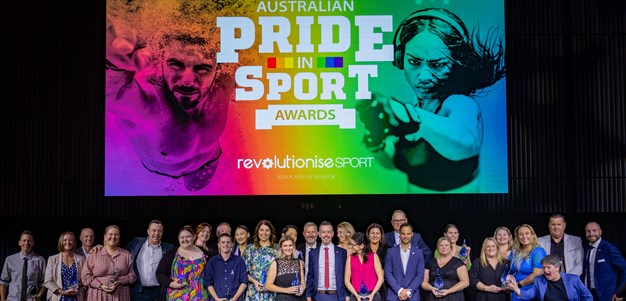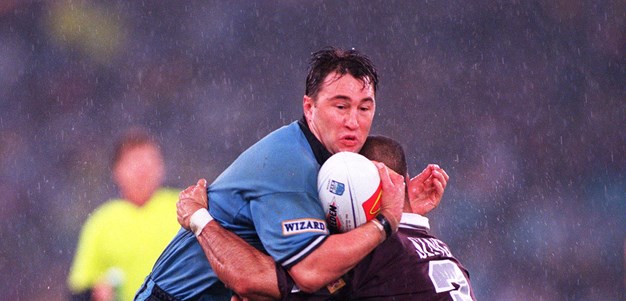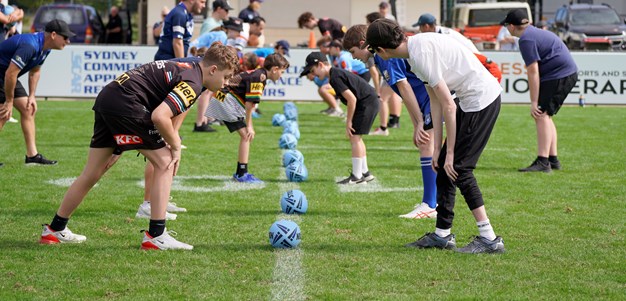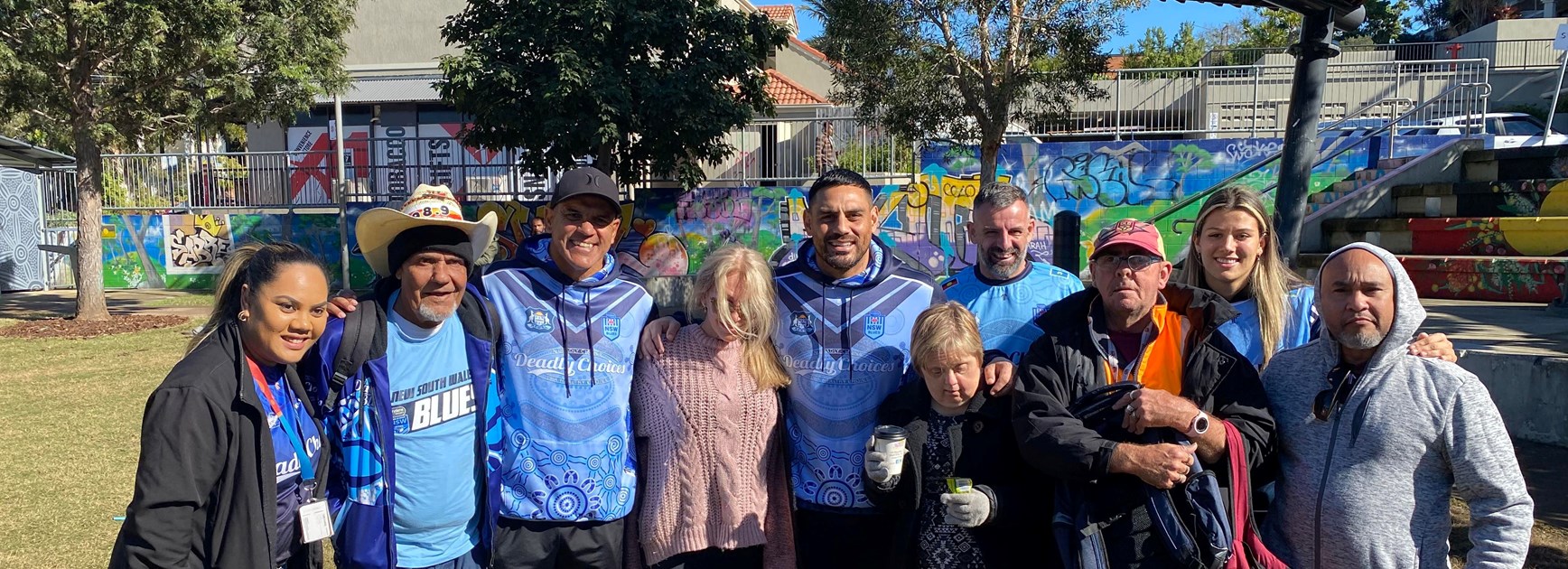
State of Origin time isn’t only for fans to get their footy fix, it is a vehicle Rugby League can use to send vital health messages to Aboriginal and Torres Strait Islander people through the nationwide ‘Deadly Choices’ program.
In fact, for the past three years the NSWRL has initiated a ‘Deadly Blues’ campaign in tandem with Institute of Urban Indigenous Health (IUIH) and has used high-profile players – both indigenous and non-indigenous – to spread the word.
Brydens Lawyers NSW Blues players did live Zoom calls with the team from Deadly Choices from within their camps, describing what the daily routine was like while encouraging everyone to get a health check.
Brydens Lawyers NSW Blues Nicho Hynes and Junior Paulo spoke via Zoom for Game One, Shaylee Bent was guest speaker from the Harvey Norman Sky Blues camp for their game against Queensland in Canberra, and Apisai Koroisau and Jack Wighton did a live Zoom for Game Three.
NSWRL Chief Executive David Trodden said Rugby League had always taken its position in the community with great pride.
“We know we have a responsibility that goes beyond just providing sporting entertainment and physical fitness,” Trodden said.
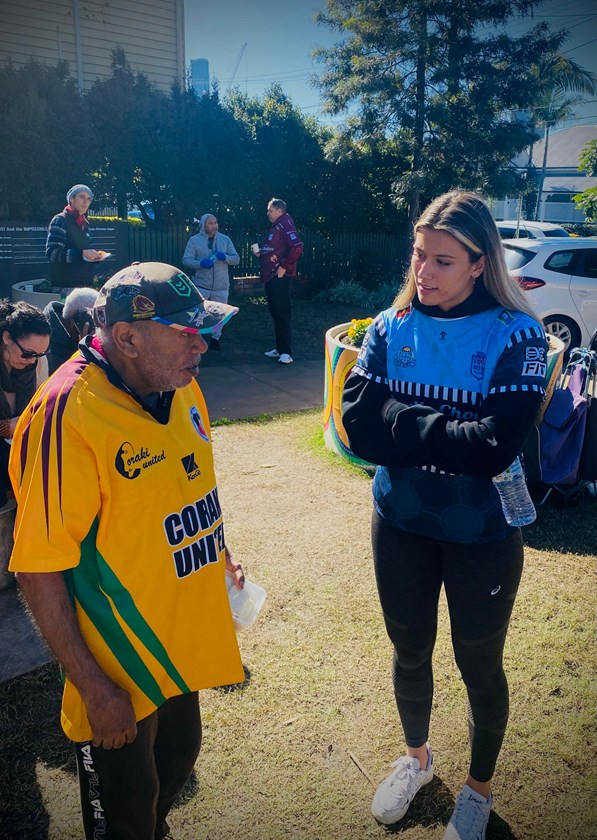
“Our ‘Deadly Blues’ programs are a genuine attempt to help our fans reach their full potential and not just our players.”
NSWRL’s Indigenous and Community Engagement Manager Kristian Heffernan said the connections between players and Rugby League fans was an essential part of empowering the Indigenous community.
“The focus for us around Origin is to utilise the power of Rugby League to encourage the Indigenous community to go and get health checks at their local participating Aboriginal Medical Service (AMS),” he said.
“The idea behind that is to keep closing the gap on the life-span of indigenous people compared with non-indigenous people. Aboriginal people are still dying too young and too often from things like heart disease and diabetes.”
For Game One, the NSWRL also ran a competition in conjunction with AMS centres in NSW, with 30 winners treated to an all-expenses paid ‘Deadly Blues’ experience.
That included flights and accommodation to Sydney, a tour led by Paul Langmack and Gavin Badger of the Ignite HQ Centre of Excellence, watching the Captain’s Run, tickets to the match at Accor Stadium, and lunch with Deadly Blues ambassadors Nathan Blacklock, Jeff Hardy, Reni Maitua and True Blues Jamie Soward and Willie Mason.
For Game Three in Brisbane the Deadly Blues ambassadors, joined by former NRL referee Gavin Badger and Bent, went ‘behind enemy lines’ to speak to around 3,000 students at Marsden High School, visited the Brisbane Youth Detention Centre to speak to inmates, and held a breakfast with the members from vulnerable communities in-and-around West End close to the city CBD.
“We were walking the streets of Brisbane in Deadly Blues shirts and we were very well received,” Badger said.
Along with the programs run during Game One and Game Three, ‘Deadly Blues’ is heading to Broken Hill in August with Mason, Maitua Hardy and dual international Sonny Bill Williams.
“So it’s not necessarily about whether you played for NSW; it’s about using the prominence of State of Origin to get Aboriginal and Torres Strait Islanders to come in and get a health check so they and their families can live a healthier lifestyle – stop smoking, eat a better diet, and exercise,” Badger said.
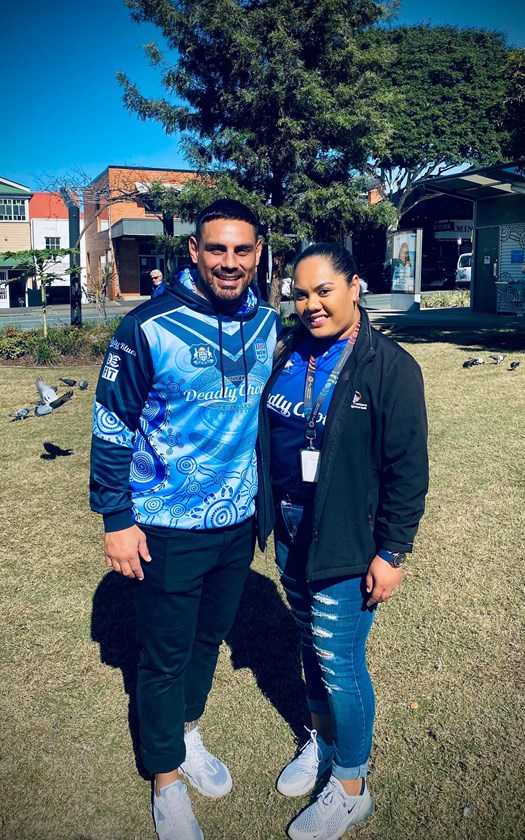
“In Aboriginal slang, if something is ‘deadly’ it’s great, so we want to see people having annual health checks – that can only be a good thing.”
Once people come in to an AMS, they can pick from a Deadly Choice Blues shirt or retro jersey from long-standing clubs like the Steelers, Newton Jets, Western Suburbs, North Sydney Bears and Balmain; along with jerseys from current NRL clubs like the Sharks and Eels.
Already 5,000 NSW Deadly Blues shirts have been given out, Heffernan said.
The campaign, which also involves numerous NRL and NSWRL clubs, is being run by the IUIH and has been backed by the Australian Government.
In conjunction with the NSWRL, the IUIH delivers the campaign in partnership with local community-controlled health services in NSW, which in the 2022 calendar year includes activities and promotions at Bulgarr Ngaru, Greater Western Aboriginal Health Service, Maari Ma and Wellington Aboriginal Corporation Health Service, Durri Aboriginal Corporation Medical Service, Galambila Aboriginal Health Service and Biripi Aboriginal Corporation Medical Centre.
